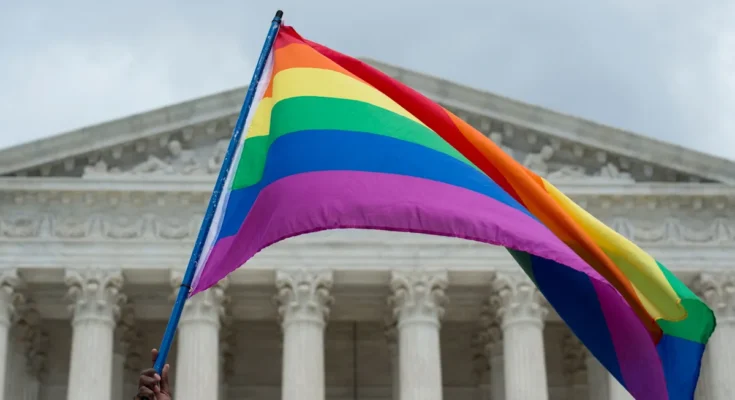The US Supreme Court does not want to renegotiate same-sex marriage. However, since two-thirds of Republicans still oppose this form of marriage, this is only a temporary victory for its supporters.
The American civil rights movement can breathe a sigh of relief for a moment: the Supreme Court will no longer address the issue of “marriage for all.” There are concerns that the conservative United States Supreme Court will take the same path they did with abortion rights. The Supreme Court abolished this, resulting in women in 14 states now having to bear children even after rape or incest.
The lawsuit was filed by Kim Davis, an employee at a civil registry office in the state of Kentucky who refused to issue marriage licenses to homosexual couples for religious reasons. In the spring, nine states also asked the Supreme Court to revise the 2015 decision, including Texas. Since conservatives gained a majority thanks to Trump’s appointment of candidates to the Supreme Court, they were confident of victory. Now comes the setback.
Reliability and continuity
Legal experts have long pointed out that a reversal of the current legal situation is unacceptable for the 820,000 homosexual couples who have married since legalization ten years ago. The principle that the Supreme Court has always been committed to, namely that there must be reliability and continuity in case law, must remain in effect. Because only in this way can humans plan and shape the course of their lives.
In general, and the right-wing MAGA milieu does not seem to understand or want to understand this, the justices are not deciding the moral quality of an action whether on same-sex marriage or the question of abortion, but are concerned with establishing equality for all Americans before the law, as guaranteed by the 14th Amendment to the US Constitution with its “Equal Protection Clause”.
The majority of Americans feel the same way. Surveys show a majority support “marriage for all”. Three dozen Republicans joined Democrats in voting for the Respecting Marriage Act in 2022, a legislative package that protects marriages between same-sex people and marriages between people of different ethnicities. Conservative voices have repeatedly threatened to end interethnic marriage if the Supreme Court delegates the issue back to the states. This fundamental attitude reminds us of what the Nazis called “racial defilement,” which criminalized mixed marriages.
The majority of supporters of same-sex marriage are Democratic Party voters and independent US citizens who are not registered to vote. More than two-thirds of Republicans continue to oppose the law. So this won’t be the last time a US court will address “marriage for all”.
Alexander Görlach teaches democratic theory at New York University.



